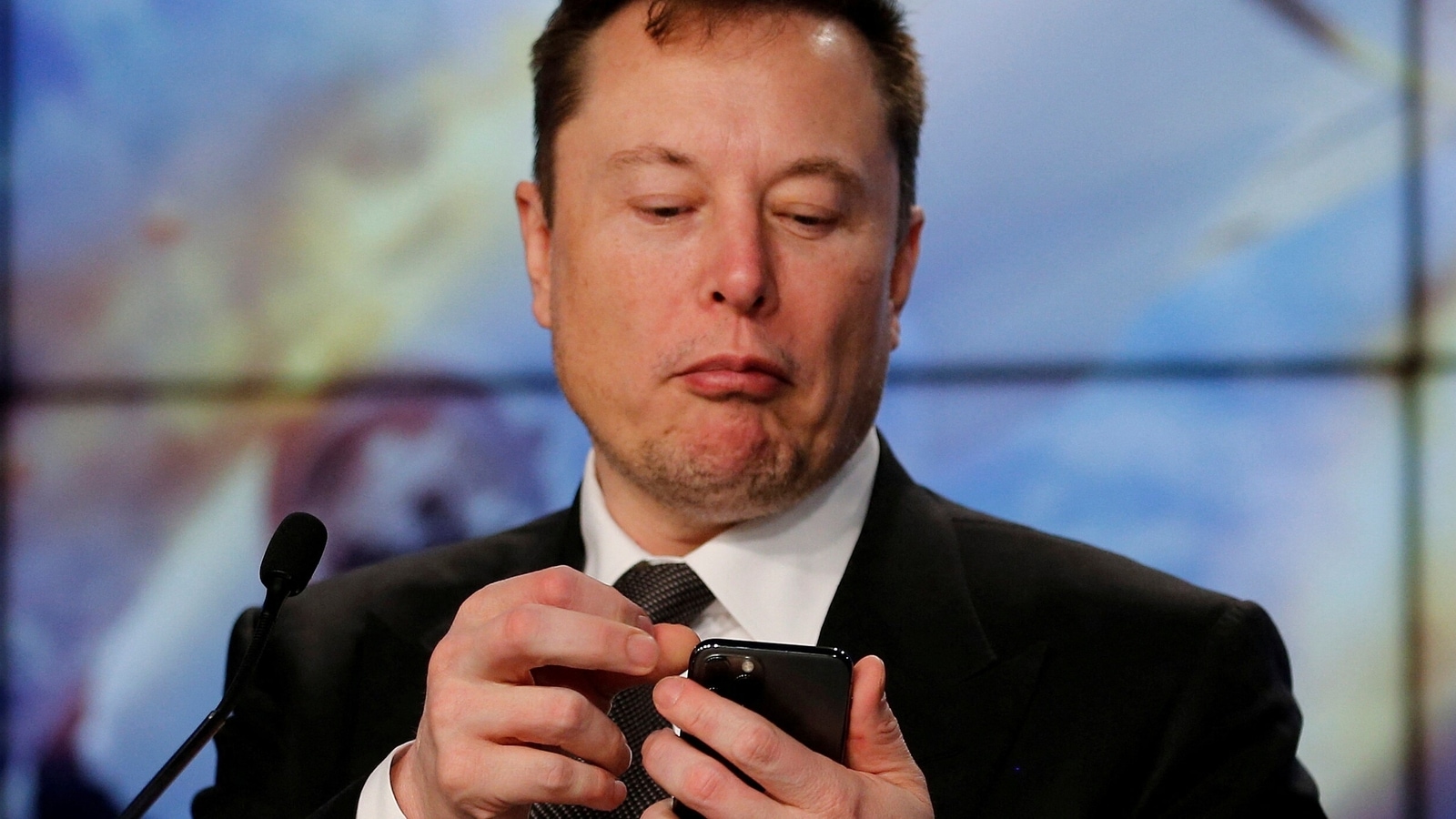Elon Musk Defeats Investor Claims That Tesla's SolarCity Deal Was Improper
Tesla Inc. co-founder Elon Musk won’t have to hand over as much as $13 billion in shares of the electric car maker he got in a buyout of SolarCity after a judge found the world’s richest person didn’t improperly ram through an overpriced deal.

Tesla Inc. co-founder Elon Musk won't have to hand over as much as $13 billion in shares of the electric car maker he got in a buyout of SolarCity after a judge found the world's richest person didn't improperly ram through an overpriced deal.
Delaware Chancery Court Judge Joseph Slights III Wednesday concluded the multi-billionaire -- who recently agreed to buy social-media powerhouse Twitter Inc. for $44 billion -- didn't improperly use his influence with Tesla directors to prod them into acquiring the struggling solar power provider Musk founded with his cousins. Tesla investors demanded Musk return Tesla shares he received as part of the $2.6 billion deal in 2016.
Slights found that Musk, who served as SolarCity's chairman and largest shareholder at the time of the purchase, didn't jam the deal through at an inflated price at the expense of Tesla shareholders. Disgruntled Tesla shareholders argued SolarCity was insolvent at the time and not worth the price. They also said Musk failed to properly remove himself from the deal's details.
“The preponderance of the evidence reveals that Tesla paid a fair price -- SolarCity was, at a minimum, worth what Tesla paid for it, and the acquisition otherwise was highly beneficial to Tesla,” Slights said in his 131-page ruling.
The judge faulted Musk for failing to properly remove himself from involvement in the deal, while concluding it wasn't a fatal flaw in the transaction.
The Delaware Supreme Court will probably be asked to review the ruling. Randy Baron, a lawyer for the investors, said he's studying options for an appeal.
“This case was about a simple principle -- loyalty to shareholders,” he said in an emailed statement. “The court's decision recognized there were flaws in the deal approval process and a high degree of involvement from a conflicted fiduciary.”
The ruling burnishes Musk's reputation as a free-wheeling entrepreneur who relishes going against the grain as he runs the world's largest maker of electric cars, and spares the billionaire what could have been a substantial ding even to his vast personal fortune. It also may reinforce the nickname “Teflon Elon,” for winning a case many thought he'd lose.
“I'm a little surprised,” said Charles Elson, director of the Weinberg Center for Corporate Governance at the University of Delaware. “But even if there was problematic conduct, ultimately it was fair to shareholders. No matter how problematic the governance issues were, ultimately there was no harm.”
Musk, 50, has an estimated net worth of $253 billion. His Twitter acquisition features one of the biggest leveraged buyout deals in history. He's taking private a 16-year-old social networking platform that has become a hub of public discourse and a flashpoint in the debate over online free speech.
In the SolarCity case, investors accused Musk of cattle-prodding Tesla directors to sign off on the buyout “at a patently unfair price, following a highly flawed process, in order to bail out” himself and family members, Slights said. The judge found instead that the price paid for the solar-power provider was “entirely fair.”
But Slights wrote that Musk's actions -- such as lining up deal lawyers and overseeing due diligence -- were causes for concern in judging the deal's fairness. Musk had interests on both sides of the acquisition, so he was required under Delaware law to step away from the transaction, the judge said.
“The process employed by the Tesla board to negotiate and ultimately recommend the acquisition was far from perfect,” he wrote. “Elon was more involved in the process than a conflicted fiduciary should be. And conflicts among other Tesla Board members were not completely neutralized.”
In the end, Musk's actions didn't taint the deal, Slights said.
“The Tesla Board meaningfully vetted the acquisition, and Elon did not stand in its way,” he wrote.
The ruling will give comfort to mergers and acquisitions lawyers defending the fairness of future deals, said Larry Hamermesh, a University of Pennsylvania professor who specializes in Delaware corporate law. “The idea that if you have a fair price, that goes a long way” to helping the deal pass muster with the courts, he said. “What people really care about is the money.”
Still, the ruling by Slights may fuel longstanding criticism that Delaware's Chancery Court -- the premier venue for U.S. corporate disputes -- is too friendly to companies and the rich people who run them.
“You get what you pay for in Delaware, that's for sure,” said Stephen Diamond, a law professor at Santa Clara University in California. The judge “acknowledges Musk was a dominant stockholder, and that his fingerprints were all over the deal,” Diamond said. “But magically, he thinks the board made an independent decision.”
Diamond said the ruling reinforces the notion that the Chancery Court is pro-company and shows there is no control over the “billionaire class” in the U.S.
Musk was the only Tesla director to challenge the investors' claims in court. His board colleagues agreed to a $60 million settlement of allegations by disgruntled shareholders that they were duped into backing the SolarCity deal. That accord was funded by insurance covering Tesla's officers and directors. The ruling was Slights' last major decision as he's retiring from the bench this spring.
Catch all the Latest Tech News, Mobile News, Laptop News, Gaming news, Wearables News , How To News, also keep up with us on Whatsapp channel,Twitter, Facebook, Google News, and Instagram. For our latest videos, subscribe to our YouTube channel.































